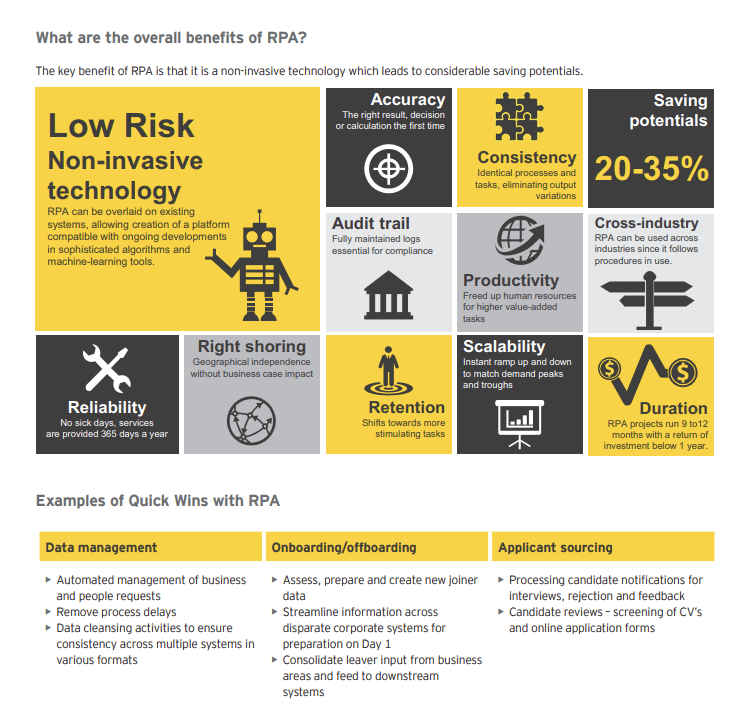Robotic Process Automation: you’ve probably already read about it in 5 or 6 business blogs predicting 2019’s top trends.
Whilst the exhilarating side of automation might lie in self-driving cars, RPA allows businesses to automate mundane rules-based tasks and business processes using software as a “digital workforce”, and therefore has massive potential implications for virtually every industry, from insurance to healthcare. Gartner estimates that by 2020, the global RPA market will top $1 billion, with automation and artificial intelligence reducing employee requirements in business shared-service centers by 65 percent.
So what do you need to know about it?
1. The potential benefits for businesses – and staff – are huge
RPA significantly reduce staffing costs and human error, improves efficiency and speeds up cycle times. It also frees up time employees usually spend carrying out mundane process-driven tasks, leaving more time for innovation, and increases customer satisfaction (see figure.1 for a breakdown of a few of the benefits, taken from an EY report.)

Figure 1: Robotic Process Automation infographic, taken from an EY report.
2. Despite the prospect of high reward, it’s worth exercising caution
As always with technology which has generated a significant amount of hype. Although increasing automation is a strategic priority for many businesses, it’s difficult to scale. One survey indicated process fragmentation, lack of clear vision, and lack of IT readiness as business leader’s primary challenges when scaling.
3. Though it will replace certain jobs, it creates others, and frees up employee time for more creative tasks.
It’s likely that the digital workforce will replace certain process-driven roles (see Forrester research for a breakdown of this.) However, it also has the potential to create new jobs, as workers train up and pivot to new roles within their companies. What’s more, making human jobs less mundane has a proven positive impact on their happiness: Deloitte research suggests that over 80% of organisations implementing or scaling RPA indicated a happier workforce.